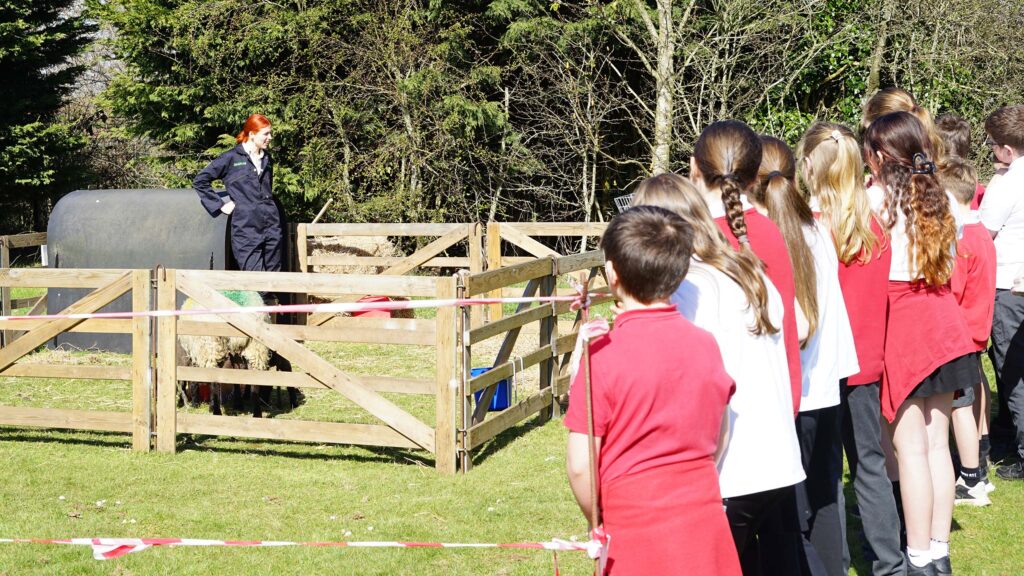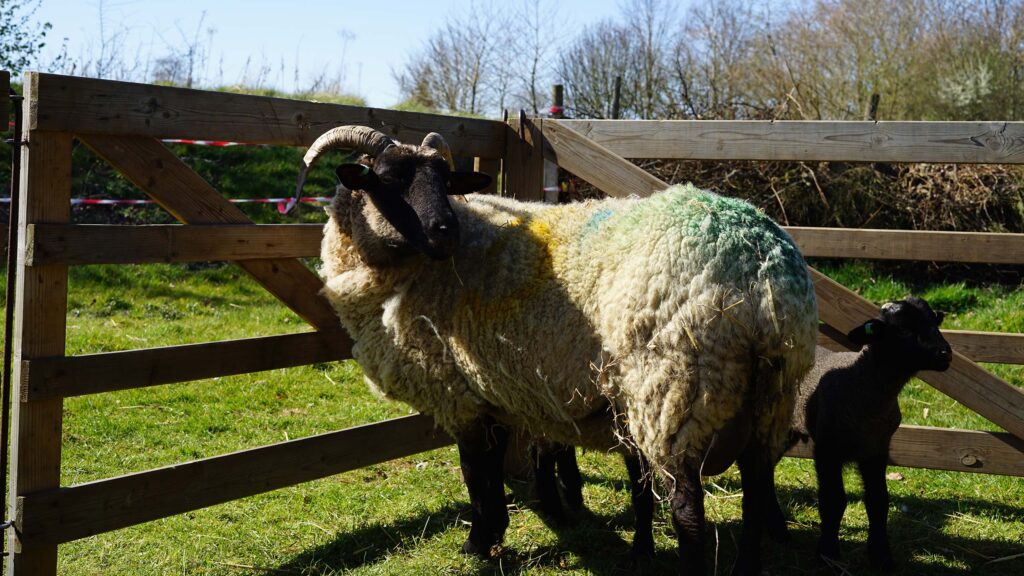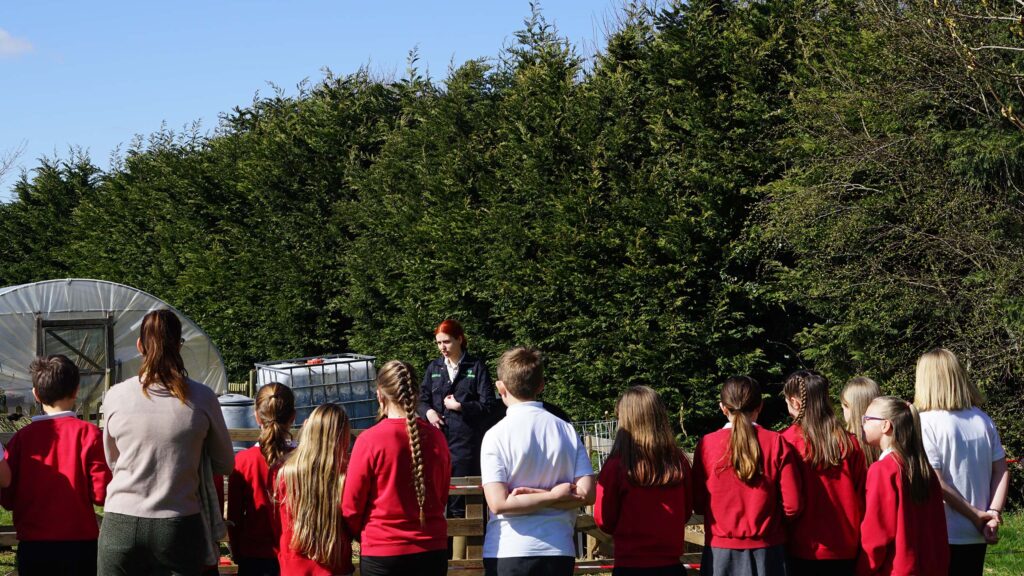Norfolk schools host ewes for hands-on farming experience
 A lesson at Bure Valley School in Aylsham © Learn About Livestock
A lesson at Bure Valley School in Aylsham © Learn About Livestock In an educational initiative, 20 schools across Norfolk hosted ewes and their lambs on their playing fields, offering students a unique opportunity to care for livestock for a week.
The Learn About Livestock project, organised by the Food & Farming Discovery Trust as part of the Royal Norfolk Agricultural Association, invited Norfolk schoolchildren to experience farming first-hand.
Over the week of 24-28 March, participating schools housed a ewe and her lamb, offering students the chance to care for and learn about these animals.
See also: New school resources link education and agriculture
The project aims to foster a deeper understanding of farming and livestock while highlighting the importance of agriculture in everyday life.
Frances Roberson, the Food & Farming Discovery Trust manager, says: “It’s such a wonderful initiative to be able to introduce children to farming.
“We are working on sowing the seeds early on, and we should never underestimate the power of a fluffy animal to create interest in agriculture.”
Since its launch in 2019, the initiative has gained increasing interest from schools across the region.
“We always have more applications than we have equipment,” says Ms Roberson.
This growing demand reflects the strong appeal of the project, which caters to both primary and secondary schools.

© Learn About Livestock
The ewes, a mix of breeds with many rare Norfolk Horns, were housed in repurposed hutches set up on the school grounds.
The Norfolk Showground site team supports the initiative by setting up the equipment two days before the ewes arrive, with schools assisting in the preparations.
“Usually, the ewe and her lamb live on the school’s playing field. A bale of straw provides their bedding,” Ms Roberson says.
Before the week began, school representatives attended a briefing on animal welfare, clinical signs and biosecurity, to ensure the safety of both students and livestock.
Schools also had access to 24-hour veterinary support in case of emergencies.

© Learn About Livestock
The project has been praised for its ability to connect children, many of whom come from inner-city areas, with animals they might not otherwise encounter.
Ms Roberson says: “Teaching children about the circular food chain and where food comes from is vital, especially as there is a lot of disregard for farming at the moment.”
Feedback from previous years has been positive, and organisers hope to see the project grow.
“We’d love a national week to learn about livestock and are happy to share our framework,” says Ms Roberson.
